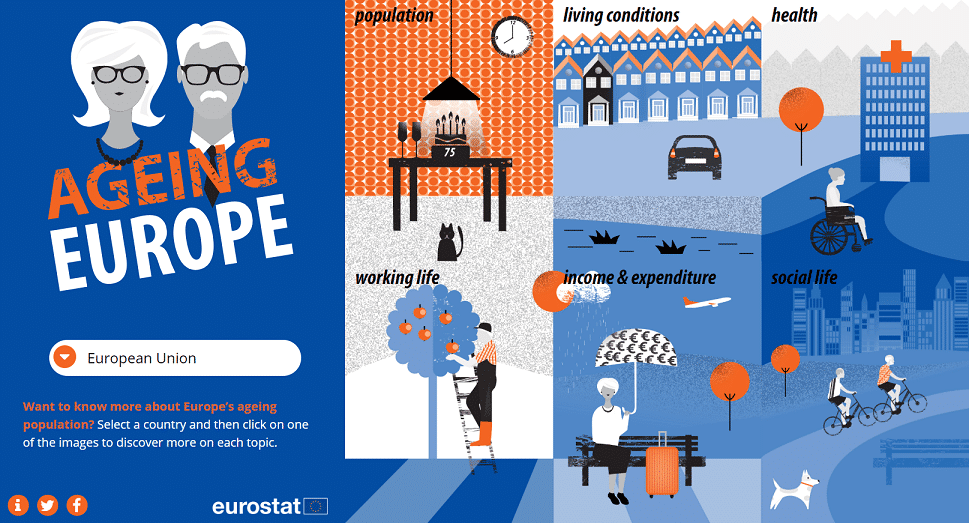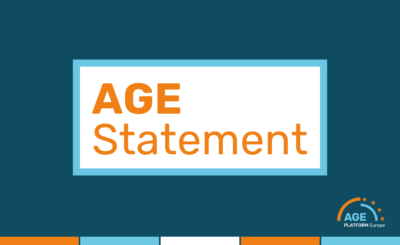
The population is ageing in all EU countries. This development will significantly impact most aspects of our society and our economy – including housing, healthcare and social protection, labour markets, the demand for goods and services, family structures and intergenerational ties.
Eurostat, the EU body providing statistical information to the institutions of the European Union, has released a new report on ageing in Europe and older Europeans’ daily lives. The data collected – between 2014-2018 – confirm some emerging developments and provide a wealth of information that will be useful to by policymakers to better understand the needs of an ageing European population, assess its societal impact and develop appropriate policies.
The challenges of healthy and active ageing
The figures collected by EU’s statistical body confirm the rapid ageing of the EU population, with an older population (65+) projected to rise from one fifth (19.7%) of the total population in 2018 to more than one quarter (28.5 %) in 2050.
One of the most challenging consequences of this demographic change is the expected significant increase in need of care, in particular for the growing share of the ‘very old’ population aged 85+. On that other hand, a larger part of the older population (65+) enjoy a good health and engage in some kind of meaningful activity or employment, such as playing sports, learning new skills, volunteering, travelling, caring for relatives, working on a part-time basis.
Health appears to be key for our well-being and independence. It also often plays a role, together with financial considerations and family commitments, when considering the date for our retirement. As the EU data further demonstrate, we are more likely to maintain our physical and mental health by remaining active and preserving our social contacts. This may also improve our chances of a happier retirement with higher levels of life satisfaction.
Another key dimension of ageing is gender. The report makes clear that women are more likely than men to experience poverty and face difficult health conditions in older age.
A call for policy action
Eurostat figures clearly illustrate that making the best use of the potential of the older population will be key to compensate for the rising care needs and ensure solidarity with the most vulnerable. To do so, we need to improve health in old age and facilitate older people’s participation in all aspects of society (cultural, social and vocational).
Read more on this report and access the full publication here
Eurostat has also published a more interactive tool providing data per domain and per country:






